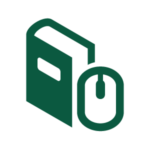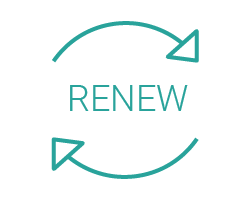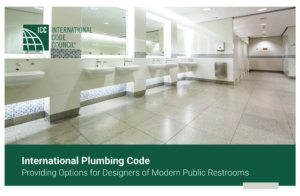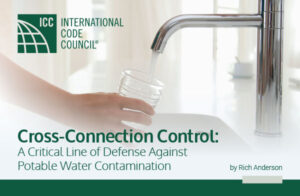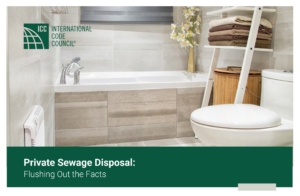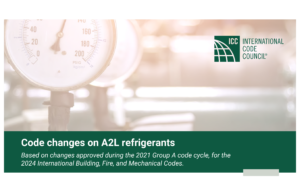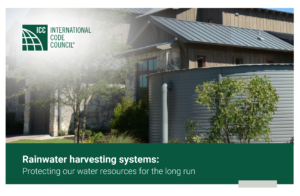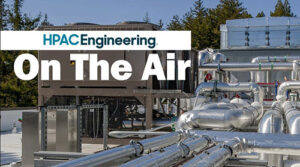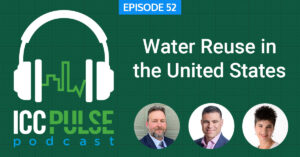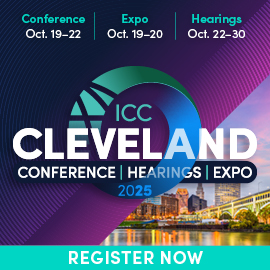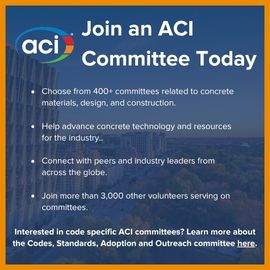
Month: June 2022
2022 Chapter Leadership Academy
Protected: Previous Annual Meetings
The International Code Council welcomes Lesley Garland to the Government Relations Department
The Code Council announced that Lesley Garland joined the Government Relations Department as Vice President, State and Local Relations.
International Code Council’s Code on a Mission Challenge is half-way to its goal with 61.5 million households covered
The Code Council’s Code on a Mission challenge, launched in 2021, aims to get over a third of the U.S. population (115 million Americans) covered by energy codes that meet or exceed the 2021 IECC by the end of 2023.
The International Code Council welcomes Lesley Garland to the Government Relations Department
Washington, D.C. – The International Code Council announced that Lesley Garland joined the Government Relations Department as Vice President, State and Local Relations. As part of her responsibilities, Garland will help develop and manage government engagement and strategic alliances and will assist in advancing ongoing U.S. national initiatives that support the adoption and use of the highest quality codes, standards, products and services of the Code Council and its family of solutions.
“The Government Relations Department plays an important role in educating policymakers and civic leaders about the importance of building codes and safety. Our government relations team is paramount in strengthening relationships and alliances at all levels of government,” said Code Council Chief Executive Officer Dominic Sims, CBO. “Lesley’s insight will greatly benefit our legislative and regulatory efforts and engagement and provide a strong voice for the Code Council.”
Garland brings more than 16 years of experience in state and local government affairs and nearly a decade of knowledge and expertise in communications. Prior to joining the Code Council, she served in leadership positions in trade associations, in senior marketing and communications roles, and as a reporter for a local paper.
“Throughout my career, I have admired the Code Council’s hard work to make our homes and communities safe, resilient and affordable,” said Garland. “It is an honor to join the government relations team and work with the Code Council’s members and partners.”

###
About the International Code Council
The International Code Council is the leading global source of model codes and standards and building safety solutions. Code Council codes, standards and solutions are used to ensure safe, affordable and sustainable communities and buildings worldwide.
ICC Credentialing
ICC Credentialing
ICC Credentialing provides widely recognized credentials that demonstrate a confirmed commitment to protect public health, safety, and welfare.
Raise the professionalism of your department and further your career by pursuing an ICC Credential.
About Code Council Examinations and Certifications
New Tool to Enhance the Certification Exam Test –
ICC Digital Codes for Exams.
ICC/IAEI Electrical Inspector Joint Certification Program
Certificate holders can expect to receive recognition in the U.S. nationally, experience increased job opportunities and improve mobility within the building safety industry. Click here to learn more.
Happy Anniversary to PRONTO! Learn more about the first 5 years of PRONTO.
Go the extra mile!
Earn a Credential of Learning Achievement (CLA).
ICC offers an innovative way to share credentials: Digital Badges
Contact Us
ICC Credentialing
Email: customersuccess@iccsafe.org
Phone: 1-888-ICC-SAFE (422-7233) ext. 5524
Certification Policies
ICC understands the importance of impartiality in carrying out our certification activities, managing conflict of interest, and ensuring the objectivity of our certification activities.
To learn more about our certification and education policies, please read the following:
Council Policy 45, CC Rules of Procedure, Records Release, and ICC Credentialing Compliance Principles.
International Code Council’s Code on a Mission Challenge is half-way to its goal with 61.5 million households covered
Washington, D.C. – On Tuesday, June 22, with passage of House Bill 803, the State of Louisiana updated their energy code to the 2021 International Energy Conservation Code (IECC) for residential and commercial buildings. With Louisiana’s adoption, 61.5 million Americans will now be covered by the 2021 IECC marking a significant milestone for the International Code Council’s Code on a Mission campaign.
The Code Council’s Code on a Mission challenge, launched in 2021, aims to get over a third of the U.S. population (115 million Americans) covered by energy codes that meet or exceed the 2021 IECC by the end of 2023. The challenge was issued to highlight the role that buildings play in meeting community energy and greenhouse gas (GHG) reduction goals and the power of energy codes in helping meet those goals. The 2021 IECC is particularly impactful as the U.S. Department of Energy found that it provides a 9.4 percent improvement in energy savings and an 8.7 percent reduction in GHGs over the 2018 edition—a nearly 40 percent improvement since the 2006 edition. The 2021 IECC saves homeowners an average of $2,320 over the life of a typical mortgage.
“The Code Council is dedicated to supporting jurisdictions in meeting their energy and decarbonization goals through a variety of tools including the IECC,” said Code Council Chief Executive Officer Dominic Sims, CBO. “Energy codes continue to be an essential tool for communities to achieve their energy efficiency and greenhouse gas reduction goals.”
In addition to energy efficiency improvements, the 2021 IECC contains updated provisions that improve usability and support communities interested in pursuing zero-energy buildings through new appendices. Communities that regularly adopt the IECC, save money for residents and businesses and improve community health and resilience.
Other states that have adopted a base or stretch energy code equivalent to the 2021 IECC include California, Maine, Montana, Nevada, Vermont and Washington. There are also a host of jurisdictions who have updated their energy code to the 2021 IECC including Larimer County, Colorado; over 20 cities in Texas; and the cities of Cave Creek and Chandler in Arizona. Additionally, the U.S. federal government has incorporated requirements from the 2021 IECC into design requirements for its own buildings and for federally-regulated manufactured housing. More jurisdictions are expected to adopt the 2021 IECC over the next year.
In support of the Code on a Mission challenge, the Code Council has developed a suite of resources to assist jurisdictions in their efforts to adopt updated energy codes located on a dedicated webpage. To support tracking, jurisdictions are encouraged to share their adoptions of a code that meets or exceeds the requirements of the 2021 IECC through the campaign’s submission form.
###
About the International Code Council
The International Code Council is the leading global source of model codes and standards and building safety solutions. Code Council codes, standards and solutions are used to ensure safe, affordable and sustainable communities and buildings worldwide.
The International Code Council Celebrates High Performance Buildings Week
Washington, D.C. – The International Code Council (ICC) joined members of the High Performance Buildings Coalition and High Performance Buildings Congressional Caucus in celebration of High Performance Building Week, a joint effort by the Coalition and Caucus to raise awareness of the importance of prioritizing efforts to advance high performing buildings in the U.S. Congress and the private sector.
The week’s key event featured a panel briefing by senior staff from the Architect of the Capitol and the General Services Administration on what their offices are doing to address building performance priorities, health and wellness, and return-to-office needs in a post-pandemic world. U.S. Representative Peter Welch, Vermont’s congressman and a Caucus Co-Chair, also addressed attendees to stress the importance of bipartisanship in successfully advancing energy conservation and clean energy objectives.
To help aid this effort, the Code Council is undertaking a major endeavor to overhaul the ICC Performance Code to not only enable performance-based design within all components and systems within a building but also to consider operational performance and functional recovery. The multi-year project is expected to result in a best-in-class model performance-based building regulation along with tools that will enable regulators and enforcement officials to measure compliance and simplify implementation.
“High Performance Building Week calls attention to the importance of ensuring our built environment is both sustainable and resilient. It brings the building industry together with policymakers to discuss the investments necessary to protect our residents from increasing hazard risk, lower energy bills, and reduce the greenhouse gas footprint from our building stock,” said Coalition Chair Gabe Maser, Senior Vice President of Government Relations, International Code Council. “The Code Council’s efforts to reenergize the ICC Performance Code will offer practitioners an additional tool towards realizing these goals and advancing the adoption and effective implementation of sustainable and resilient building codes and standards. The Code Council and the Coalition look forward to continuing to advance our shared priorities with the Caucus and before Congress and the U.S. Administration.”
To learn more about the High Performance Buildings Coalition and other High Performance Buildings Week events, visit hpbuildings.org.
###
About the International Code Council
The International Code Council is the leading global source of model codes and standards and building safety solutions. Code Council codes, standards and solutions are used to ensure safe, affordable and sustainable communities and buildings worldwide.
About the High Performance Buildings Coalition
The High Performance Buildings Coalition is a coalition of approximately 200 organizations that provides guidance and support to the High Performance Buildings Caucus of the U.S. Congress. They support legislation and policies that protect life and property, promote innovative building technologies, enhance U.S. economic competitiveness, increase energy and water efficiency in the built-environment, advance sustainable and resilient communities, and support the development of private sector standards, codes and guidelines that address these concerns.
Louisiana clears new bill to improve energy efficiency codes statewide
Washington, D.C. – On June 22, 2022, Louisiana Governor John Bel Edwards signed House Bill (HB) 803 into law requiring the statewide adoption of the 2021 International Energy Conservation Code (IECC) and the 2021 International Residential Code (IRC) Chapter 11 Energy Efficiency. The Louisiana legislature had previously cleared the bill unanimously. The newly signed bill will transfer the responsibility of commercial energy code enforcement from the state government to the local, municipal/parish government and third-party providers, while the Louisiana State Uniform Construction Code Council (LSUCCC) will add the IECC as part of the statewide adopted codes.
To facilitate the code’s adoption, HB 803 also establishes the “Energy Code Commission” which will be comprised of 16 members and be responsible for reviewing and amending the 2021 editions of the IRC Chapter 11 and IECC for residential, commercial and state-owned buildings. This temporary commission will review and consider amendments to the 2021 energy code provisions and will dissolve upon the completion of the LSUCCC’s Administrative Rule process, completing the adoption of the 2021 IECC. The code’s ultimate statewide effective date is July 1, 2023.
“Adopting and implementing modern building codes and standards plays a vital role in achieving a safe, affordable and sustainable built environment. Energy codes are an important contributor to individual and community resilience,” said Code Council Chief Executive Officer Dominic Sims, CBO. “They help avoid wasted energy and save consumers money on their utility bills. The Code Council commends Louisiana for its proactive leadership.”
The new legislation comes as the U.S. Department of Energy (DOE) is standing up a grant program to assist with the implementation of updated energy codes. The Energy Code Implementation Program was established in the Infrastructure Investment and Jobs Act (IIJA) passed in November 2021, which provides $225 million over five years. The DOE is expected to release its funding opportunity announcement later this year. The Code Council provides resources to help jurisdictions access this funding.
Louisiana’s new legislation also aligns with the Code Council’s Code on a Mission campaign. This campaign aims to have over a third of the U.S. population covered by energy codes that meet or exceed the 2021 IECC by the end of 2023. The Code Council is already halfway to achieving its goal.
More details about the recently passed legislation can be found here.
###
About the International Code Council
The International Code Council is the leading global source of model codes and standards and building safety solutions. Code Council codes, standards and solutions are used to ensure safe, affordable and sustainable communities and buildings worldwide.
PMG Articles
PMG Articles, Podcasts, and Videos
The PMG Technical Resources Team (PMG Team) develops technical resources and documents to assist in understanding the technical requirements of the PMG codes and related standards.
Following is a collection of informative articles, podcasts and videos on important PMG issues and topics published by the PMG Team.
Articles
From its inception in 2000, the IPC has prioritized privacy for occupants of public restrooms. Updates and additions have been made to subsequent editions of the code to improve upon privacy and safety concerns inside of public restrooms. This article highlights the changes that have been made to the various editions of the codes, which have come to offer a toolbox of practical and safe solutions for the design of the modern public restroom.
We take cross-connection control for granted, but it is critical for safe, clean drinking water. Most of us can go to a faucet, water bottle filler, or drinking fountain and get a drink of potable water. This is due largely to the fact that cross-connection control is an inherit plumbing design and installation component. Cross-connection control consists of various methods, assemblies, and devices, that when installed and maintained properly, safeguard our potable water.
Private sewage disposal systems are underground wastewater treatment structures, commonly used in rural areas without centralized sewer systems. They use a combination of nature and proven technologies to treat wastewater from household plumbing produced by bathrooms, kitchen drains and laundry. This article dives into the proper use and maintenance of private sewage disposal systems.
The U.S. EPA issued a rule in 2021 mandating the phasedown of HFC refrigerant production and use over the next 15 years. The EPA adopted a final rule accepting six refrigerant alternatives for use in residential and light commercial air conditioning equipment – all are classified as A2L refrigerants. This article provides a brief history of the transition to A2L refrigerants and provides an overview of the related code changes in the 2024 IMC, IBC, and IFC that will permit the use of A2L refrigerants for human comfort.
Rainwater harvesting systems have been used throughout the world to provide precious water resources to areas where water is scarce. The CSA B805-18/ICC 805-2018 — Rainwater Harvesting Systems standard applies to the design, materials, installation and operation of rainwater harvesting systems for potable and non-potable applications. This article provides an overview of the standard and how it can be used as an alternative compliance path to Chapter 13 of the International Plumbing Code.
In this episode of HPAC Engineering's 'HPCA On The Air" we cover the recent EPA refrigerant standards update, with ICC's Jim Cika. Here, he previews major code changes upcoming on A2L refrigerants that will impact the HVAC industry sooner than many in the industry may realize.
In this episode of the "ICC Pulse Podcast", we dive in to discussing water reuse. We challenge you to explore how water reuse can be a safe, innovative way to help save the world’s water supply. We speak with a few experts on breaking the stigma of water reuse and how reusing water is possible in our homes and businesses.
Videos
Backflow Basics Series
Introduction
Backflow Basics Series
Lavatory Faucets and Sinks
Backflow Basics Series
Kitchen Sinks, Faucets
and Dishwashers
Backflow Basics Series
Bathtubs and Showers
Backflow Basics Series
Hose Bibs
Parallel Water Distribution
with Rich Anderson
ICC Director, PMG Resources
Pipe Sizing
Why it is Important
with Ramiro Mata
ICC PMG Standards Manager
Product Listing, Marking, &
Labeling Requirements
with Lisa Reiheld
ICC Director, PMG Resources
Hydrogen Gas &
the Built Environment
with Mark Fasel
ICC Director, PMG Resources
Introduction to the
ANSI/PHTA/ICC-2 Standard
with Rich Anderson
ICC Director, PMG Resources
The 2024 ISPSC
Health and Life Safety
with Rich Anderson
ICC Director, PMG Resources
The 2024 ISPSC
VGBA Drain Covers
with Rich Anderson
ICC Director, PMG Resources
